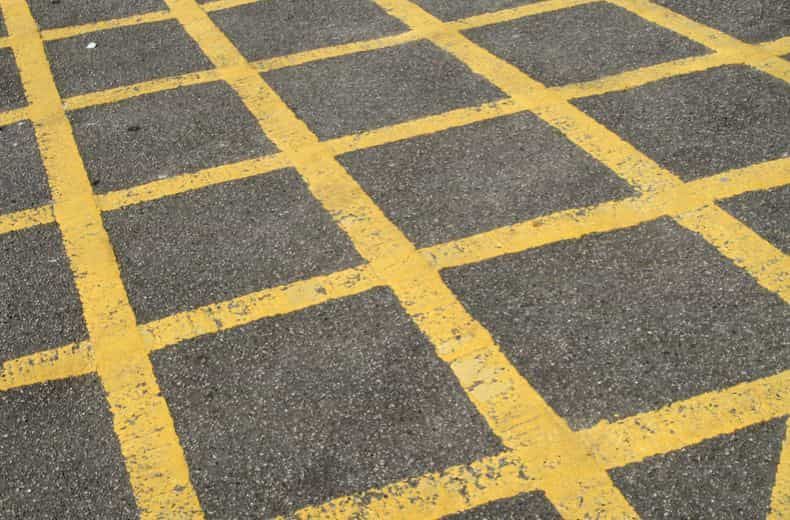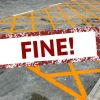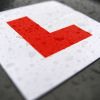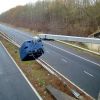Two-thirds of drivers (67%) say they find it difficult to get through some yellow box junctions without stopping, while 13% say this is the case for most they encounter. The same percentage (13%) however, believe every yellow box junction is easy to negotiate without coming to a halt on the lines.
Among those who claim it is difficult to drive through a yellow box junction without needing to stop, more than three-quarters (78%) think this is very often due to poor sequencing of traffic lights. A third (32%) blame their infringement on the fact so many other drivers break the rules in this way that it forces them to do the same. One in five (20%) say they are badly designed and 15% believe they are often used in the wrong places.
Read more: RAC calls on Government to update guidance on yellow box junctions

RAC sale – up to 33% off*
• Roadside cover from £5.29 a month†
• We get to most breakdowns in 60 mins or less
• Our patrols fix 4/5 breakdowns on the spot

Currently, only local authorities in London and Cardiff are able to enforce yellow box junctions with cameras and issue penalty charge notices (PCNs), but many more councils in England and Wales would like to be able to use cameras to enforce these often troublesome and controversial junctions. The rules are normally enforced by police, however declining officer numbers and the difficulty of catching offenders has resulted in little or no enforcement, leading to calls for a roll-out of camera enforcement elsewhere.
Asked whether councils across the country should be able to issue PCNs to any driver that comes to a standstill in one, more than a third (36%) of drivers surveyed by the RAC thought it was a good idea that would help prevent congestion at junctions. Another 36% agreed they ought to have this power, but should limit enforcement only to problem junctions. A quarter (24%), however, are adamant local authorities should not have these powers.
But a majority of the 1,990 drivers questioned in the RAC survey would like to see a softer approach to enforcement if local authorities were able to use cameras to issue PCNs, with nearly two-thirds saying a warning letter should be sent in the first instance, followed by a fixed amount PCN for subsequent infringements.
SEE ALSO: Our guide to box-junction fines
A fifth (21%) think there should be a lower penalty charge for a first infringement, but a higher one for subsequent offences if caught again within a 12-month period. Thirteen per cent claim it should be a fixed amount penalty charge notice, reduced for early payment, no matter how many times a driver gets caught.
Under the Traffic Management Act 2004 local authorities in England and Wales could be allowed to enforce ‘moving traffic’ contraventions such as disregarding yellow box junction markings. Despite a recommendation from the House of Commons Transport committee seven years ago for councils to be given these powers by 2013, the Government said in 2015 it had no plans to activate them.
The Local Government Association, however, has called for them to be put into place nationally, arguing the police have largely ceased to enforce moving traffic offences since the act was introduced. Scotland, however, would have to introduce new legislation to do this as the country is not covered by the Traffic Management Act 2004.
RAC spokesperson Simon Williams said: “Our research shows yellow box junctions are a very divisive issue with drivers. While the majority are in favour of councils more widely being allowed to use cameras to catch offenders, there is a strong feeling that many junctions are not set up fairly which leads to drivers having no choice but stop in them, whether that’s due to poor traffic light sequencing, poor design or being used in the wrong place.
“Box junctions can also heighten stress for drivers as those at the front of traffic lights often feel pressured to move on as a result of impatient drivers behind who don’t realise they are being prevented from doing so by the presence of yellow lines.
READ MORE: Traffic light cameras: what you need to know
“If the Government was to grant local authorities the same powers that are already being used in London and Cardiff it’s highly likely we would see a massive rise in the number of drivers being issued penalty charge notices.
“The RAC is generally supportive of local authorities having the power to enforce yellow box junctions because of the value of local knowledge, but has concerns that it could lead to local authorities being inconsistent in their application of road traffic law. There is also a risk that cash-strapped authorities may see it as a lucrative revenue stream. To prevent this, we think warning letters for a first contravention would be appropriate.
“We therefore believe it is essential that every yellow box junction where a camera is installed is comprehensively tested to ensure it is easy to negotiate without stopping.”
A guide to yellow box junctions
Why do we have box junctions?
Box junctions are used to keep traffic flowing by ensuring the road space is kept free for moving vehicles coming from different directions
How do you drive in a box junction?
- You may enter a yellow box junction when your exit from it is clear and there is sufficient space on the other side for your vehicle to clear the box without stopping
- You may only stop in a yellow box junction if you are turning right and are prevented from doing so by oncoming traffic or vehicles ahead of you are also turning right
- If your exit is not clear and you are not turning right then no part of your vehicle should enter the yellow box
- The principle and the rules are the same for a yellow box junction on a roundabout
Remember:
Blocking a yellow box junction means that everyone else gets blocked with you
The rules around yellow box junctions are covered by rule 174 of the Highway Code.
The original RAC statement on this issue is also available in our Media Centre.
Did you know, you can get fined for moving out of the way of an ambulance?
Want more useful content like this sent straight to your inbox?






